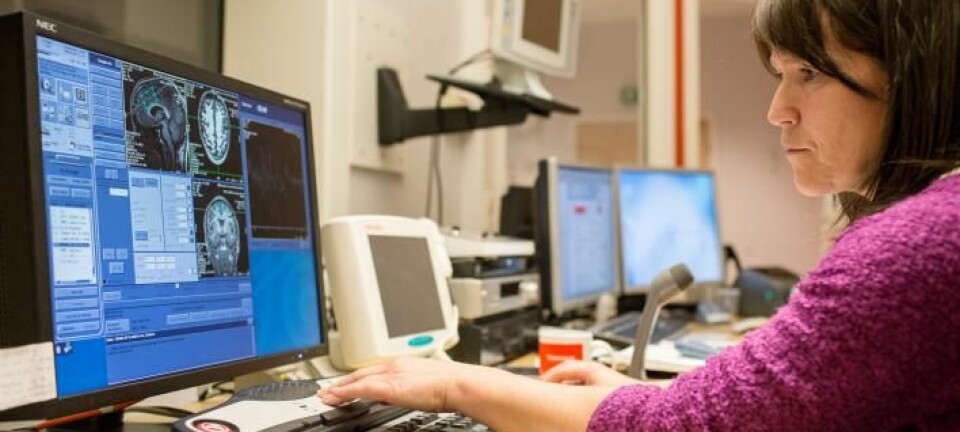
PTSD patients show more signs of inflammation after psychotherapy
People with post-traumatic stress disorder often have signs of inflammation in the body. But even though psychotherapy reduced their stress level, the inflammation became worse, shows new study.
The immune system and mental health disorders are linked.
The last ten years of research have shown that people with mental illnesses, such as depression, anxiety and bipolar disorder, often have chronic inflammation in the body. The relationship has been studied extensively in people with depression.
Scientists do not fully understand how these conditions are related, but research into depression has shown that inflammation can trigger mental illness.
At the same time, new studies have shown that treatment of depression may also alleviate inflammation.
But when Helge Toft at the Norwegian National Advisory Unit on Concurrent Substance Abuse and Mental Health Disorders (ROP) and colleagues recently examined inflammation and post-traumatic stress disorder (PTSD), the results were exactly the opposite.
The researchers studied a group of 39 PTSD patients who participated in 12 weeks of psychotherapy treatment. And the patients' psychological condition improved. But blood tests showed that the levels of inflammatory cytokines had actually become more elevated.
Studied patients with various diseases
Research on PTSD and inflammation is still scarce, Toft says.
And the results that do exist can be ambiguous.
So, Toft and his colleagues decided to investigate. They wanted to find out not only if people with PTSD have signs of inflammation, but also what happens with that inflammation during a period of treatment.
They examined a group of 124 patients who were treated at Modum Bad in-patient clinic in Norway. Participants suffered from a number of mental illnesses, such as anxiety, mood disorders, eating disorders, and post-traumatic stress disorder.
Cytokines – inflammatory substances in the blood – were measured in all patients before treatment. The same tests were run halfway through treatment and at the end of treatment. Researchers also mapped patients' mental illness symptoms.
Read More: People inflict the most complicated forms of trauma
Increased inflammation
The results showed that all the patients started with abnormally high levels of cytokines, which indicated inflammation.
At the end of the treatment, the participants felt significantly better psychologically.
But this was not reflected in their immune system responses.
Most of the participants' cytokine levels in the blood remained about the same throughout the study period – except for the patients with PTSD. They ended up with considerably higher levels, which may indicate that they actually had more inflammation in the body after therapy.
"Something happened during treatment that caused the body to react very strongly," says Toft.
But for the time being, neither he nor the other researchers know what that could be.
"Some experts in the field wonder if the results are evidence of patients being retraumatised. People with PTSD have often had harrowing experiences, such as war or abuse. Perhaps they relive the emotional trauma when they talk about it.
"Others think this is a unlikely explanation," says Toft.
Read More: Psychological traumas intensify whiplash
Important research
So what do these new results mean?
Solveig Merete Klæbo Reitan from NTNU's Department of Mental Health is researching the connection between the immune system and mental illness.
"This is important research that contributes to our limited knowledge of immune activation in post-traumatic stress disorder," she says.
"The findings aren't what we expected, based on what we know about depression treatment and normalisation of the immune system. This is very interesting and needs to be followed up with further and bigger studies to see if it can be repeated."
Reitan says the study by Toft and his colleagues breaks new ground, but she also points out that it is small and may have disruptive factors.
For example, some of the patients were taking anti-inflammatory drugs, probably due to pain or other physical ailments. This may have affected the results.
Moreover, the study does not say anything about what happened to the participants in the long term.
"What's interesting is to see how patients fare over a longer period of time," says Reitan.
She believes that it is not impossible for psychotherapy to suppress inflammation even in PTSD patients, but that the process takes longer than with depression. That is why it is important to conduct studies that include six and twelve month patient follow-ups.
Individuals with depression may have gone a few months or maybe a few years with the disease, whereas many PTSD patients have lived with extreme mental stress for decades. This may have led to more fixed changes in their immune systems.
It may also be that psychotherapy alone cannot effectively lower inflammation levels in people with PTSD.
Read More: An enlightened approach to “illegal” drugs will revolutionise medicine and science
Better treatment
"Future treatments may include immunosuppressive drugs along with psychotherapy," says Toft.
He hopes eventually to be able to do more research on the relationship between PTSD and the immune system. But first he needs to analyse data from a follow-up of 89 of the patients one year after the survey.
Reitan also urges more research, both to see if other studies have the same results and to find out what happens to patients in the long run.
Eventually, new knowledge about the connection between the immune system and mental illness will hopefully lead to more effective treatment for people with mental health issues.
----------------
Read the Norwegian version of this article at forskning.no



































